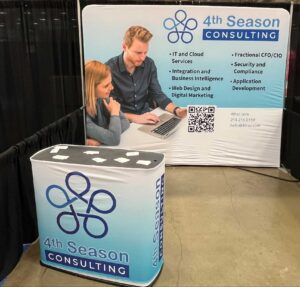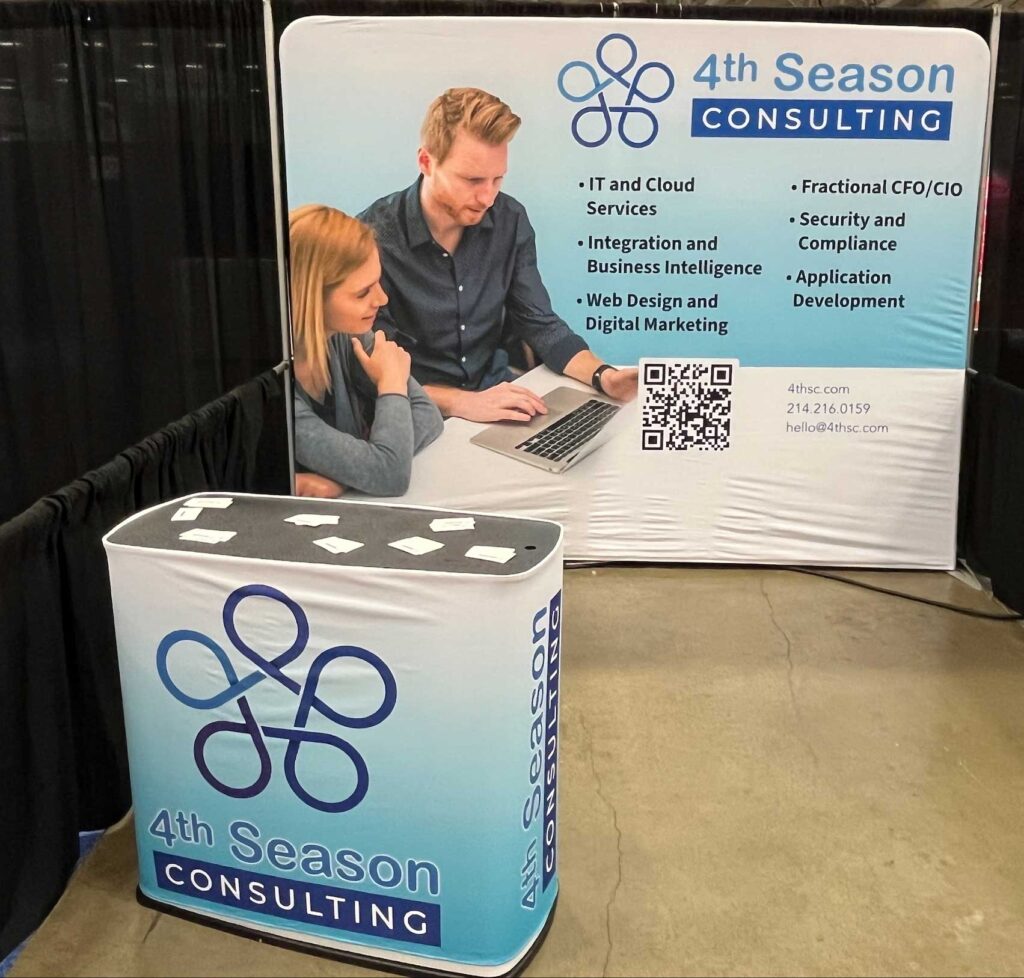4th Season Consulting announces its participation in the IES Quality Summit, scheduled for June 4th at the Plano Event Center. This summit serves as a crucial forum for professionals dedicated to the advancement of quality and continuous improvement within the independent educational services sector, a domain increasingly relevant to the ongoing development and training of healthcare professionals.
At our exhibit, 4th Season Consulting will present its specialized consulting services designed to assist healthcare education organizations in achieving and sustaining the highest standards of quality. We understand the critical importance of robust quality frameworks in the education and training of physicians and other healthcare providers, ensuring optimal patient care and professional competency.
 The IES Quality Summit offers a valuable opportunity to engage with peers, learn about innovative solutions, and contribute to the collective pursuit of excellence in educational services. For organizations involved in the training and professional development of physicians, maintaining rigorous quality standards is paramount. We invite attendees to visit the 4th Season Consulting booth to discuss your specific needs and explore how our tailored services can support your objectives.
The IES Quality Summit offers a valuable opportunity to engage with peers, learn about innovative solutions, and contribute to the collective pursuit of excellence in educational services. For organizations involved in the training and professional development of physicians, maintaining rigorous quality standards is paramount. We invite attendees to visit the 4th Season Consulting booth to discuss your specific needs and explore how our tailored services can support your objectives.
Our team of experienced consultants offers expertise in the following key areas:
We look forward to engaging with physicians and healthcare education leaders at the summit to explore collaborative opportunities in advancing the quality of healthcare education.
We invite you to visit the 4th Season Consulting booth at the Plano Event Center on June 4th to learn more.
Contact Us:
web: 4thsc.com
phone: 214.216.0157
email: pkelly@4thsc.com
#IESQualitySummit #HealthcareEducation #QualityAssurance #ContinuousImprovement #MedicalEducation #PhysicianDevelopment #HealthcareConsulting #4thSeasonConsulting #PlanoEventCenter #Booth #Networking #HealthcareProfessionals #EducationalExcellence
Lewisville, TX – March 24, 2025 – 4th Season Consulting, a leading provider of technology consulting services, is pleased to announce the appointment of Kathy Carlton as Business Manager. Kathy brings a wealth of experience in human resources and business management, making her a valuable addition to our team.
Kathy Carlton has an impressive track record in HR and business operations, having previously served as Director of Human Resources at Catalyst Health Group / StratiFi Health. During her tenure, she led aggressive population growth, supported acquisitions, and oversaw HR department operations, talent acquisition, compensation & benefits, compliance, and much more.
"We are very excited to welcome Kathy Carlton to 4th Season Consulting," said Patrick Kelly, CEO of 4th Season Consulting. "Her extensive experience and proven leadership in HR and business management will be instrumental in driving our company's growth and success."
In her new role, Kathy will be responsible for overseeing day-to-day financial and accounting operations, managing third-party relationships, benefits administration, staffing processes, and more. Her expertise will help 4th Season Consulting continue to deliver exceptional services to our clients and support our mission of enhancing healthcare through innovative technology solutions.
About 4th Season Consulting
4th Season Consulting is a technology consulting firm specializing in IT support, business intelligence, integration, custom application development, generative AI, web design, digital marketing, HIPAA compliance, and HITRUST readiness. 4th Season Consulting’s on-demand consulting services, offers flexible and cost-effective solutions that help clients adapt to changing markets, seize opportunities, and overcome challenges. The company's team of experienced consultants is dedicated to delivering expert guidance and innovative technology solutions to drive business objectives.
Contact:
Patrick Kelly
President and CEO
4th Season Consulting
pkelly@4thsc.com
https://4thsc.com/
Lewisville, TX – March 17, 2025 – 4th Season Consulting, a leading provider of technology consulting services, is pleased to announce the appointment of Mark Armstrong as the new Senior Manager, Interactive and Creative Services. Mark brings a wealth of experience and expertise in website design, development, and digital marketing.
Mark Armstrong brings valuable experience from Webix and North Texas Food Bank to the 4th Season Consulting team. In his previous role, Mark led a team in designing and developing interactive websites, as well as user interfaces for everything from small businesses to large corporations. His diverse skill set includes custom WordPress development, SEO/SEM expertise, and management of multi-million-dollar Google AdWords accounts. Mark's proven track record of optimizing landing page conversions and increasing clients' SERPS positions makes him a valuable addition to the 4th Season Consulting team.
"We are delighted to welcome Mark to our team," said Patrick Kelly, President and CEO of 4th Season Consulting. "His extensive experience in interactive and creative services, combined with his dedication to delivering positive ROI, aligns perfectly with our mission to provide innovative and effective technology solutions to our clients. We are confident that Mark will play a key role in driving our company's growth and success.”
Mark holds a Bachelor of Arts in Graphic Communications from Texas State University and is known for his collaborative leadership style, his ability to achieve high conversion rates, and his commitment to enhancing the organizational brand.
About 4th Season Consulting
4th Season Consulting is a technology consulting firm specializing in IT support, business intelligence, integration, custom application development, generative AI, web design, digital marketing, HIPAA compliance, and HITRUST readiness. 4th Season Consulting’s on-demand consulting services, offers flexible and cost-effective solutions that help clients adapt to changing markets, seize opportunities, and overcome challenges. The company's team of experienced consultants is dedicated to delivering expert guidance and innovative technology solutions to drive business objectives.
Contact:
Patrick Kelly
President and CEO
4th Season Consulting
pkelly@4thsc.com
https://4thsc.com/
Lewisville, TX – March 2, 2025 – 4th Season Consulting, a leading provider of technology consulting services, is pleased to announce the appointment of Holly Heitz as the new Senior Project Manager for our healthcare business line. Holly brings a wealth of experience and expertise in application management, strategic planning, and full lifecycle project management.
Holly Heitz joins 4th Season Consulting from Catalyst Health Group, where she served as the Sr. Director of Application Services. In her previous role, Holly led a team of professionals in the configuration and implementation of AthenaOne for member practices, ensuring smooth deployment and integration with existing systems and workflows. Holly's proven track record of managing complex projects and optimizing application ecosystems makes her a valuable addition to the 4th Season Consulting team.
"We are thrilled to welcome Holly to our team," said Patrick Kelly, President and CEO of 4th Season Consulting. "Her extensive experience in healthcare IT and her dedication to continuous process improvement align perfectly with our mission to provide innovative and effective technology solutions to our clients. We are confident that Holly will play a key role in driving our company's growth and success."
Holly holds a Bachelor's degree in Interdisciplinary Studies, Business, Psychology & Sociology from the University of Texas at Arlington. She is known for her collaborative leadership style, her ability to resolve issues efficiently, and her commitment to enhancing the organizational brand.
About 4th Season Consulting
4th Season Consulting is a technology consulting firm specializing in IT support, business intelligence, integration, custom application development, generative AI, web design, digital marketing, HIPAA compliance, and HITRUST readiness. 4th Season Consulting’s on-demand consulting services, offers flexible and cost-effective solutions that help clients adapt to changing markets, seize opportunities, and overcome challenges. The company's team of experienced consultants is dedicated to delivering expert guidance and innovative technology solutions to drive business objectives.
Contact:
Patrick Kelly
President and CEO
4th Season Consulting
pkelly@4thsc.com
https://4thsc.com/
 Dallas, TX – 02/18/2025 - 4th Season Consulting is excited to announce its participation in the MedTrade 2025 trade show in Dallas, Texas, taking place Wednesday, Feb 18 and Thursday, Feb 19. We invite you to visit us at Booth #1344 to learn more about how we are driving innovation and business success across industries through our specialized technology consulting services.
Dallas, TX – 02/18/2025 - 4th Season Consulting is excited to announce its participation in the MedTrade 2025 trade show in Dallas, Texas, taking place Wednesday, Feb 18 and Thursday, Feb 19. We invite you to visit us at Booth #1344 to learn more about how we are driving innovation and business success across industries through our specialized technology consulting services.
At 4th Season Consulting, we offer a wide range of services to help businesses streamline their operations, enhance security, and grow through strategic technology solutions.
Our expert team specializes in:
What You Can Expect at Our Booth (1344):
Our team is dedicated to providing hands-on support to businesses at all stages of growth, helping them maximize their potential through the integration of cutting-edge technology solutions.
About 4th Season Consulting
4th Season Consulting specializes in providing businesses with the tools they need to succeed in today’s fast-paced, technology-driven world. We offer services in integration and business intelligence, web design and digital marketing, security and compliance, IT and cloud services, application development, and fractional CTO/CIO services. Our expert team partners with clients to create tailored technology solutions that enhance performance, drive innovation, and ensure long-term success.
To learn more about how we can support your business or to schedule a meeting during MedTrade, visit our website at https://4thsc.com.
We look forward to connecting with you at MedTrade 2025.
Stop by Booth 1344 to see how 4th Season Consulting can help your business leverage technology for growth and success.

Use the form below or call 1-214-216-0159!